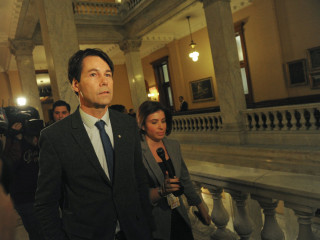Full Decision
Heard Before: Justice James Stribopoulos
Counsel for Defendant Krylov: Mirel Giugaru
Counsel for Defendant DSF: Louis P. Covens
Counsel for Plaintiff: Self-represented
This was a costs endorsement arising from a successful summary judgment motion brought by the defendants Krylov & Company and Devry Smith Frank LLP.
The plaintiff Mr. Khan was involved in a motor vehicle collision following which he retained Krylov & Company to act for him. Devry Smith Frank LLP was retained by TD General Insurance to act for the defendant in Mr. Khan’s personal injury action. Mr. Khan’s claim against the defendant driver ultimately settled.
Following the settlement of his personal injury action, Mr. Khan commenced a second action alleging that Krylov & Company (“Krylov”) conspired with Devry Smith Frank LLP (DSF). Mr. Khan alleged that Krylov and DSF conspired together to conceal from him the actual amount paid by TD General Insurance to settle his claim. Krylov and DSF are then alleged to have misappropriated the difference between what the insurer actually paid and what Mr. Khan ultimately received.
DSF and Kylov brought a motion for summary judgment which was decided in their favour. In the motion judge’s decision, the court noted that Mr. Khan had alleged in his materials that he had requested his file from the defendant Krylov on multiple occasions, but was never provided with same. At the time of Mr. Khan’s requests, there was no outstanding account and the firm’s fees and disbursements had been fully paid from the settlement proceeds. The motion judge noted that the defendants had not responded to these specific allegations in their materials. An opportunity was therefore provided to the defendants to respond to Mr. Khan’s allegations in their written submissions on costs.
Krylov and DSF sought substantial indemnity costs based on their success in the summary judgment motion, along with the fact Mr. Khan “unsuccessfully levelled allegations of fraud and conspiracy against them”.
In their submissions, Krylov argued that Mr. Khan had provided no evidence to substantiate his allegations about the improper withholding of his file. Krylov argued that no submissions were required to answer what were said to be “unsubstantiated allegations”. Furthermore, Krylov argued that Mr. Khan had an outstanding complaint with the Law Society, and this was the more appropriate venue to deal with this issue.
Justice Stribopoulos did not accept the Krylov’s submissions. He found that there was evidence of Krylov’s failure to provide Mr. Khan with his file. More importantly, Justice Stribopoulos found that if Krylov had provided Mr. Khan with his file as they were obligated to do, the entire action arising from the alleged conspiracy between the defendants could likely have been avoided.
Justice Stribopoulos ultimately awarded no costs to Krylov, despite their success at the summary judgment motion, holding:
[17] Given all of this, despite Krylov & Company’s success, the court declines to award the firm either its costs on the motion or in the action. Rather, given that Krylov & Company’s own behaviour was instrumental in precipitating this unnecessary action, under Rule 57.01(2), this is one of those rare cases in which it is proper to award costs against a successful party.
Instead, Krylov was ordered to pay Mr. Khan’s disbursements.
As DSF was not in possession of Mr. Khan’s file, Justice Stribopoulos found that they shouldered none of the responsibility for the within action. Costs were therefore awarded to DSF on a partial indemnity basis payable by Mr. Khan.













